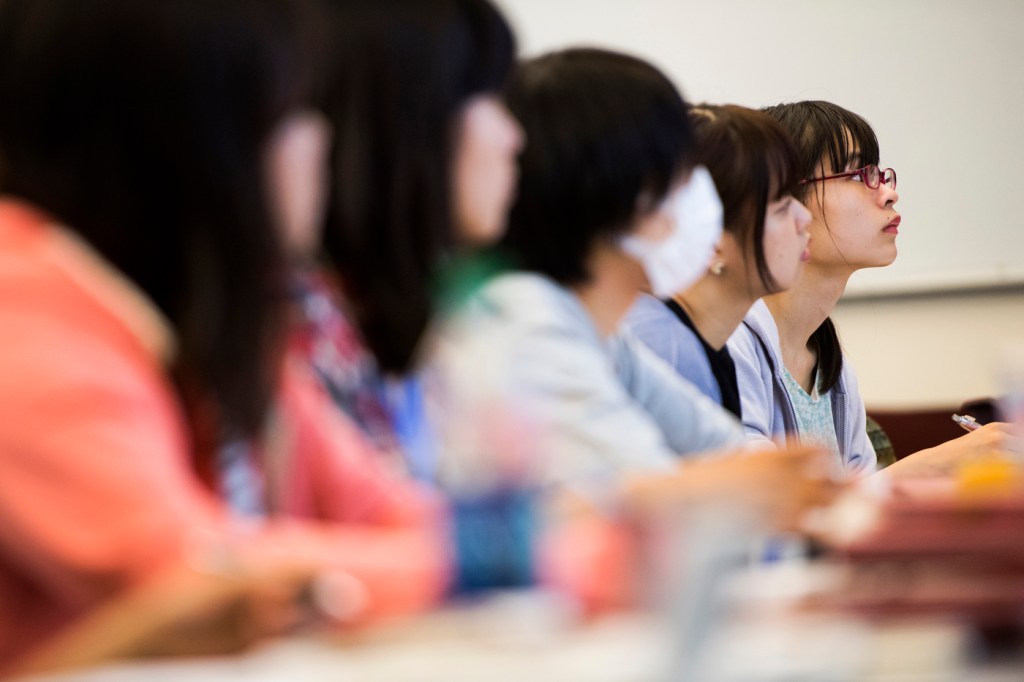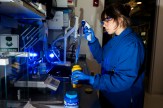Students at Northeastern, Meiji University in Tokyo ‘have a lot more in common than they thought’

Gasshuku means “lodging together” in Japanese. The Budo tradition immerses students in a lifestyle of living and learning together for several hours each day.
Karin Kobayashi’s gasshuku moment came during a class where Northeastern students in Boston were quick to raise their hands and actively participate.
“Japanese people hesitate to say their opinion or ask questions in public,” said Kobayashi, a political science student from Meiji University in Tokyo. “In the short time I was here, I tried to behave like an American student—it was so fun because every class is based on interactive communication.”
Kobayashi was a participant in Twenty-first century city: Tokyo and Kyoto, an exchange program in which students from Northeastern University and Meiji University traded places and perspectives.
The exchange was part of Northeastern’s Dialogue of Civilizations program, which focuses on intercultural learning and helping students think globally. Northeastern and Meiji University have held a Dialogue of Civilizations program for more than 10 years.
From May to June, more than 30 Northeastern students spent four weeks exploring the economic and urban growth of Tokyo and Kyoto. In August, 14 Meiji students from their university’s School of Political Science and Economics came to study in Boston before traveling to Washington D.C. to visit the nation’s capital.
Both student groups pitched in to help their counterparts deal with culture shock and get a deeper introduction to their hosts’ cities.
“We could have gone to Tokyo and had a surface-level engagement with the city and country,” said Mike Tormey, who is studying civil engineering and economics at Northeastern. “But we had a much more enriching experience because we had the perfect guides. It was amazing to forge these relationships even though we came from such different backgrounds.”
That’s the goal, according to Tom Vicino, a Northeastern professor of political science, public policy, and urban affairs, who co-led this year’s exchange program with Lori Gardinier, a Northeastern professor in the human services program.
“We seek to foster cultural understanding from different viewpoints,” he said. “It makes our students realize that they have a lot more in common than they originally thought.”
Takumi Takeda, a professor in the School of Political Science and Economics at Meiji, echoed Vicino’s sentiments.
“What’s most important is that this is a two-way program where each side supports each other,” Takeda said. “Through that support system, we have strengthened the friendship between the universities.”





